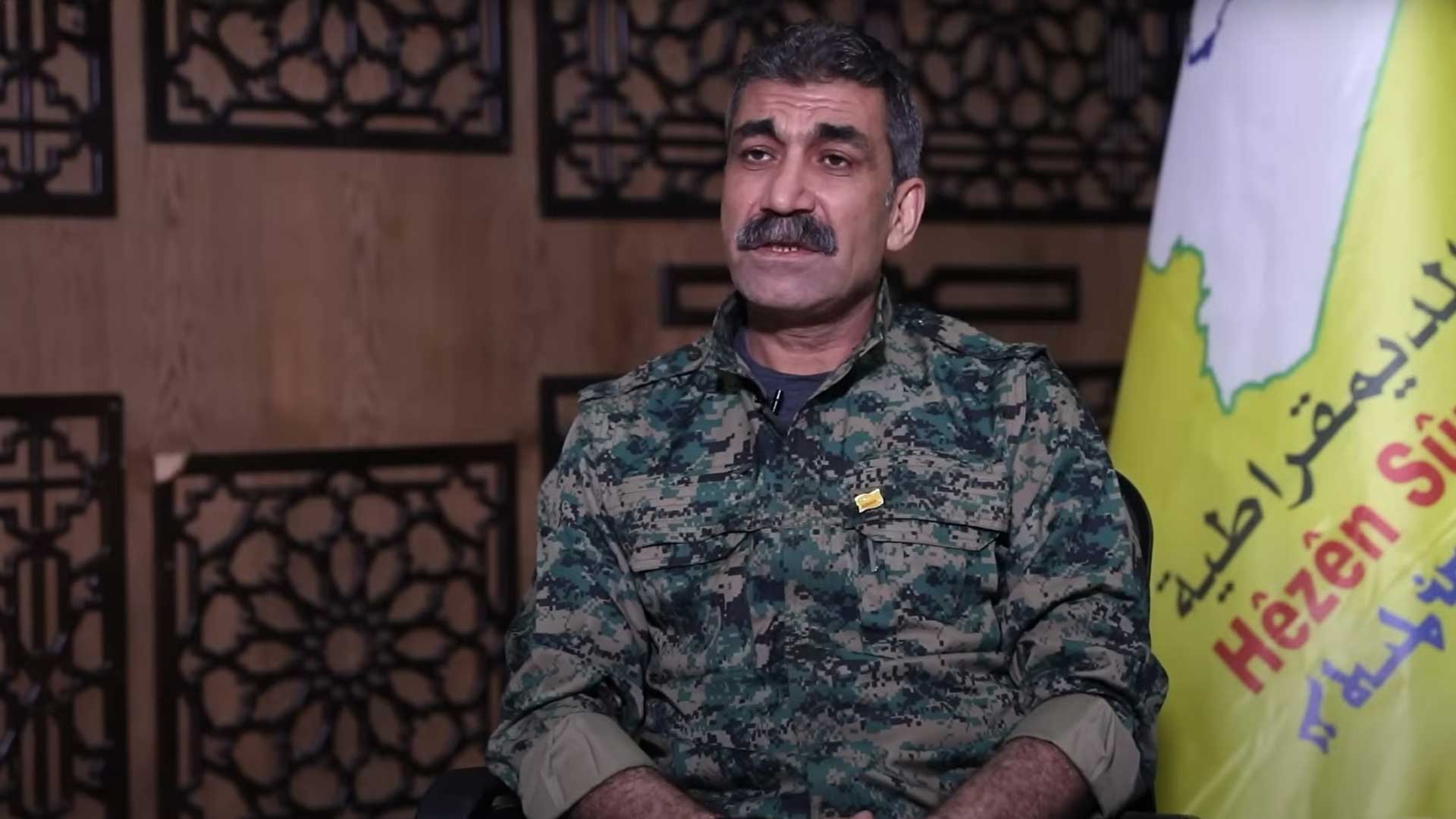Sipan Hemo: The SDF Is Ready to Join Syria’s National Army — On the Condition of Preserving Its Identity
Member of the General Command of SDF, Sipan Hemo stated the force is ready to join Syria's national army if its identity and struggle for democratic, pluralistic values are preserved. He emphasized that Afrin's return and compensation for displaced residents is the key test of Damascus's sincerity.

ERBIL (Kurdistan24) – Member of the General Command of the Syrian Democratic Forces (SDF), Sipan Hamo, announced that the SDF is prepared to integrate into a future national army of Syria, provided that its identity, recognition, and struggle for democratic values and equality among all Syrian components are fully respected. Hemo made these remarks in an official statement published on the SDF’s website, outlining the force’s strategic vision for Syria’s post-war military structure and national unity.
In his statement, Hemo reaffirmed the foundational mission of the Syrian Democratic Forces, emphasizing that since their establishment, the SDF has fought for the creation of a democratic and pluralistic Syria, one that guarantees equal rights for all ethnic and religious communities without discrimination. “From the moment of our formation, we have strived to build a democratic and united Syria that protects the rights of all its components equally,” he said. “We have paid a heavy price along this path.”
Addressing claims that the SDF is stalling the process of military integration, Hemo firmly rejected such assertions. “On the contrary,” he said, “we want to be part of the new national army, and we consider this a strategic objective. We believe the SDF represents the foundation upon which a truly national Syrian army should be built, and such an army cannot be established without the participation of the SDF.”
However, the commander warned against certain sides attempting to frame the integration process through what he described as a “narrow vision” aimed at marginalizing or dissolving the SDF. “We will never accept such attempts,” Hemo stated. “The integration we seek must preserve the identity of the SDF and respect its struggle and sacrifices. It must also ensure the recognition of the rights of all Syrian communities — Sunni, Druze, Christian, Kurd, and Alawite alike.”
Hemo also emphasized that Afrin remains the real test of the Damascus government’s seriousness toward peace and reconciliation. He stated that the return of displaced Afrin residents, compensation for their losses, and accountability for those responsible for violations are essential prerequisites for building trust.
“We told them clearly,” Hemo said, “your stance toward Afrin will be the real measure of your sincerity. The people of Afrin must be allowed to return, their damages must be compensated, and those who committed crimes against them must face justice. Only when you approach Afrin with fairness can we begin to look at you differently.”
By highlighting Afrin as a pivotal issue, Hemo underlined the SDF’s broader vision that reconciliation in Syria cannot be selective or symbolic. For him, Afrin stands as both a humanitarian and political benchmark — a litmus test of Damascus’s willingness to move beyond rhetoric toward genuine reform and national inclusion.
The senior commander reiterated that the SDF serves as a national guarantor of Syria’s unity, embodying the collective defense of the country’s diversity and coexistence. “The SDF is a national force capable of bringing all components together,” Hemo said, reaffirming the organization’s inclusive nature and cross-community foundation.
He stressed that as long as the Syrian government fails to take credible and confidence-building steps, the SDF will continue to stand as a defensive force for the existence, life, and identity of its people. “Until the government takes serious steps that inspire confidence, the SDF will remain the force protecting our existence, our lives, and our identity,” he said.
Hemo, who also heads the military committee in charge of negotiations with the Damascus government, maintained that while the SDF remains open to dialogue, its participation in any national military framework must rest on mutual respect and shared national vision.
“The government’s progress in these talks,” he noted, “depends on its ability to take meaningful steps. Every delay or obstruction will only reflect its own hesitation.” He further stressed that the SDF’s commitment to Syria’s unity and stability does not mean surrendering the values and achievements gained through years of struggle.
In his closing remarks, Hemo reaffirmed that the SDF’s readiness to integrate into a new national structure stems from its long-term vision of a democratic Syria. However, such integration, he emphasized, cannot come at the expense of the force’s core identity or its inclusive national character.
“Our identity and the dignity of our fighters are non-negotiable,” he said. “Any true national army must be built upon respect, equality, and recognition — not domination or exclusion.”
By framing the SDF’s stance as both principled and strategic, Sipan Hemo’s message underscores a key dilemma at the heart of Syria’s ongoing political transition: the tension between state centralization and democratic pluralism. For now, the SDF’s position remains clear — it is ready to join a united Syrian army, but only if that unity is built on justice, inclusivity, and mutual respect.